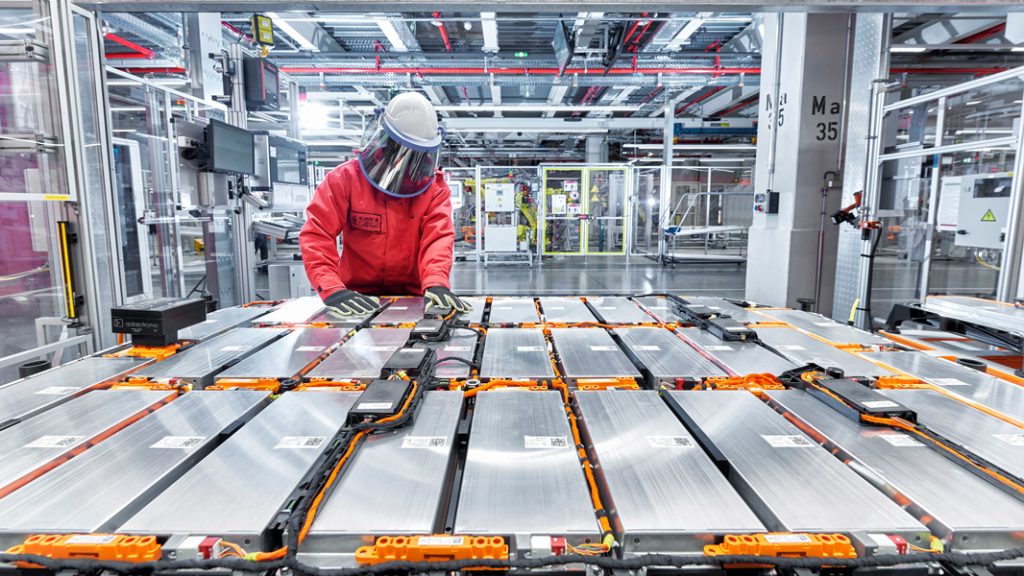
Life and the auto industry have taught us many things, and one of the significant teachings is that there’s no free lunch. The push towards electric vehicles (EVs) is a remarkable step towards a cleaner future, but it comes with costs and concerns that must be addressed. Like any individual, what’s on the outside may not be what’s in the heart. So, let’s look at the heart of EVs—the battery.
The Environmental Paradox of EVs
The allure of electric vehicles lies in their promise of a cleaner, more sustainable driving experience. We promote it, sell it, and talk to our customers about it. But, like most things in life, this promise has its challenges. Though driving these vehicles may be clean, producing them is one of the dirtiest processes and requires fossil fuel to power it.
The complexity of EV battery technology, coupled with the difficulties in lithium mining and the ecological disadvantages in production, paints a more nuanced picture of the so-called ‘clean energy’ revolution. The mining process not only takes a toll on the environment but also on the workers involved.
The human cost in the lithium mines includes hazardous working conditions, long hours, and, in some regions, inadequate compensation. This adds another layer of complexity to the ethical considerations surrounding the adoption and promotion of electric vehicles.
The Promise and Challenges of Battery Life
When it comes to selling EVs, battery life is often at the forefront of customer concerns. With most new BEVs, their batteries offer substantial ICE comparable driving ranges. But understanding the factors that affect battery longevity is vital to addressing customer queries.
Charging Times: With the advent of fast-charging stations, EVs can be charged in a fraction of the time it once took. Dealers must be aware of the availability and compatibility of charging options for different models.
Battery Degradation: Over time, the capacity of a battery diminishes. Providing customers with accurate information about maintaining battery health can foster trust and satisfaction.
Recycling and Disposal: The disposal of an EV battery is a complex process, and, as we’ve reported here, few have been recycled. As these batteries contain harmful substances, proper recycling and disposal are vital. The burgeoning recycling industry is seeking ways to repurpose and reuse these materials, but it’s a complex field that requires strict regulation and innovative thinking. It’s good that OEMs like VW are taking the lead on recycling, but it’s still a work in progress.
Lithium Mining’s Environmental Impact: The extraction of lithium, a key component in EV batteries, comes with significant ecological disadvantages. Mining operations can lead to soil, water, and air pollution. Balancing the demand for lithium with responsible mining practices is a global challenge that the auto industry must grapple with.
Fossil Fuels in Manufacturing: Despite the clean driving experience, the production of EVs requires substantial energy, often derived from fossil fuels. This paradox underlines the importance of ongoing innovation to reduce the environmental impact of manufacturing.
A Balanced Perspective
The electrification of the auto industry offers exciting possibilities for a cleaner future but also brings forth complex challenges. As dealerships navigate this new landscape, a balanced understanding of EV technology, including its innovations and imperfections. Educating customers will also go a long way toward increasing customer loyalty.
As we move towards greener transportation, the industry must confront not only the technological hurdles but also the ecological and ethical considerations. From mining practices to manufacturing processes, each step toward an electric future comes with responsibilities.
Life teaches us that every reward has its costs, and the EV revolution is no exception. Pursuing cleaner driving must match a commitment to responsible production, transparent communication, and thoughtful innovation. Only then can the promise of electric mobility be fully realized without hidden costs overshadowing its potential.





























